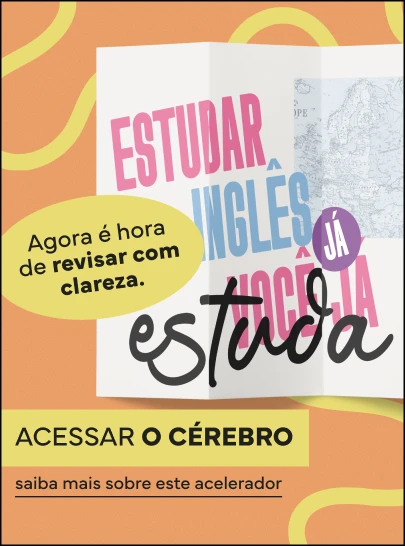Se você está aprendendo inglês, já deve ter percebido que os verbos irregulares são um dos maiores desafios. Eles não seguem a regra comum de adicionar -ed no passado, e por isso precisam ser memorizados. Neste guia, você vai encontrar os 50 verbos irregulares mais usados em inglês, com tradução e exemplos práticos para facilitar seus estudos.
O que são verbos irregulares em inglês?
- Verbos regulares → formam o passado e particípio com ed (play → played, work → worked).
- Verbos irregulares → mudam de forma no passado e particípio, sem seguir regra fixa (go → went → gone).
Por isso, é essencial aprender os mais comuns, já que eles aparecem em quase todas as conversas e textos em inglês.
Lista com os 50 verbos irregulares mais usados em inglês
| Base Form | Past Simple | Past Participle | Tradução | Exemplo |
|---|---|---|---|---|
| be | was/were | been | ser/estar | She was happy yesterday. |
| become | became | become | tornar-se | He became a doctor. |
| begin | began | begun | começar | The class began at 9 am. |
| break | broke | broken | quebrar | He broke his phone. |
| bring | brought | brought | trazer | She brought a gift. |
| build | built | built | construir | They built a new house. |
| buy | bought | bought | comprar | I bought a new book. |
| catch | caught | caught | pegar | He caught the ball. |
| choose | chose | chosen | escolher | She chose the red dress. |
| come | came | come | vir | They came to the party. |
| cost | cost | cost | custar | The bag cost $50. |
| cut | cut | cut | cortar | He cut the paper. |
| do | did | done | fazer | I did my homework. |
| drink | drank | drunk | beber | She drank water. |
| drive | drove | driven | dirigir | He drove to work. |
| eat | ate | eaten | comer | We ate pizza last night. |
| fall | fell | fallen | cair | She fell off the chair. |
| feel | felt | felt | sentir | I felt tired yesterday. |
| find | found | found | encontrar | She found her keys. |
| fly | flew | flown | voar | The bird flew away. |
| forget | forgot | forgotten | esquecer | He forgot my name. |
| get | got | gotten/got | conseguir/receber | I got a new job. |
| give | gave | given | dar | She gave me a book. |
| go | went | gone | ir | They went to London. |
| grow | grew | grown | crescer | The child grew fast. |
| have | had | had | ter | I had a busy day. |
| hear | heard | heard | ouvir | I heard a noise. |
| hold | held | held | segurar | She held his hand. |
| keep | kept | kept | manter | He kept his promise. |
| know | knew | known | saber | I knew the answer. |
| leave | left | left | deixar/sair | She left early. |
| let | let | let | deixar | He let her speak. |
| lose | lost | lost | perder | I lost my wallet. |
| make | made | made | fazer | She made a cake. |
| meet | met | met | encontrar | We met at the café. |
| pay | paid | paid | pagar | He paid the bill. |
| put | put | put | colocar | She put the keys on the table. |
| read | read /rɛd/ | read /rɛd/ | ler | I read a book yesterday. |
| ride | rode | ridden | andar (de) | He rode his bike. |
| run | ran | run | correr | She ran fast. |
| say | said | said | dizer | He said hello. |
| see | saw | seen | ver | I saw a movie. |
| sell | sold | sold | vender | She sold her car. |
| send | sent | sent | enviar | I sent an email. |
| sit | sat | sat | sentar | He sat on the chair. |
| sleep | slept | slept | dormir | She slept well. |
| speak | spoke | spoken | falar | He spoke to the manager. |
| spend | spent | spent | gastar | I spent all my money. |
| stand | stood | stood | ficar de pé | He stood by the door. |
| take | took | taken | pegar/levar | She took the bus. |
| teach | taught | taught | ensinar | She taught English. |
| tell | told | told | contar | He told me a story. |
| think | thought | thought | pensar | I thought about you. |
| write | wrote | written | escrever | She wrote a letter. |
Quer ter acesso a um material de gramática completo que te ajuda a revisar e aprender gramática? Clica aqui pra saber mais sobre o Cérebro do Inglês








